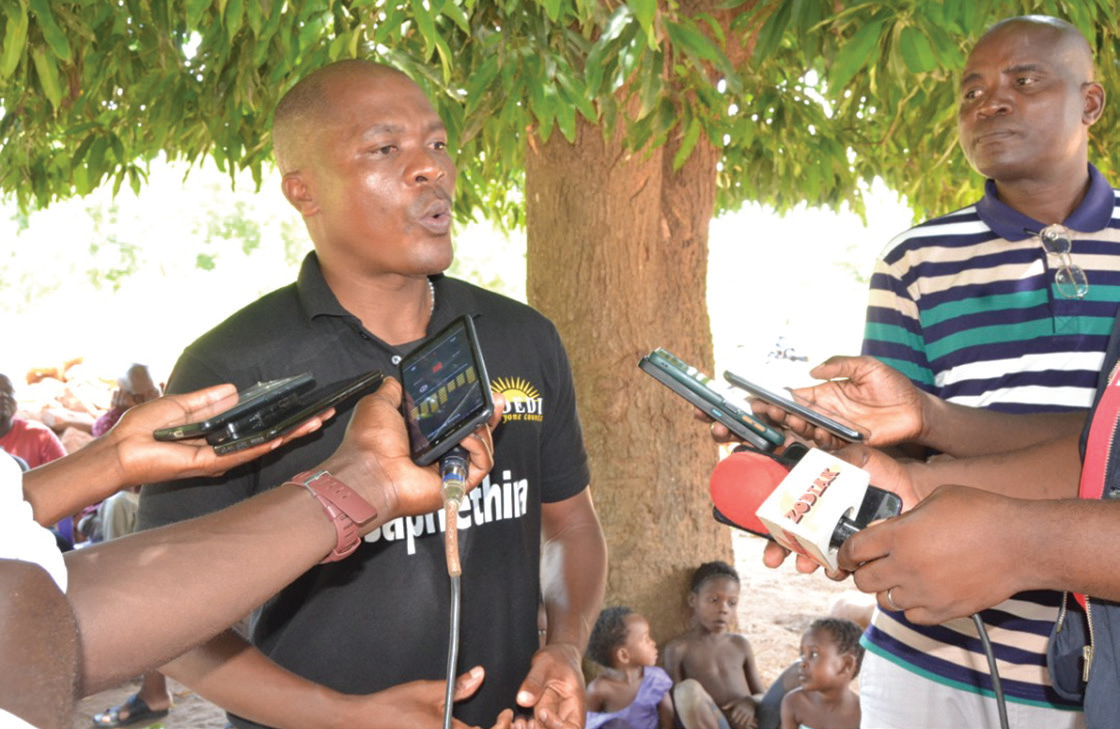Nsanje-Marka Road brings bittersweet experience
Infrastructural development is supposed to stir public satisfaction but the story is different in Nsanje where some citizens have become hostile to the K11 billion Nsanje-Marka Road Project.
The people claim instead of being their source of pleasure, the project has turned out to be a pain in the neck due to the numerous challenges it has brought about.

The sentiments came to light on Thursday when Centre for Democracy and Economic Development Initiative (Cdedi) launched an initiative that empowers citizens to monitor every public project being undertaken in their areas as one way of demanding transparency and accountability.
During the event held in Traditional Authority (T/A) Ngabu, community leaders and members took turns trashing the project which started in 2019 and covers four other T/As, including Ndamera, Chimombo, Makolo and Malemia.
Among others, the people are annoyed with the contractor’s decision to reroute certain rivers such as Nyankotola, a development that is affecting operations at Mbenje Health Centre and Mchele Primary School.
According to the communities, every time it rains, Nyankotola River floods, submerging the school and the health centre.
The people also complained that they were given peanuts as compensation for destroying their property, including fruit trees, indigenous and exotic trees and houses to pave the way for the road.
While describing the road project as “a fraud and mockery”, group village head (GVH) White blamed government for betraying the people of the area by giving them shoddy infrastructure.
“I have never seen a road as trashy as this one… I have personally taken this issue up with the district commissioner [DC] countless times but he has decided to give us a blind ear.
“We are now sending our appeal to the Minister responsible and even to the President to intervene on the matter because this project has brought misery to the people, instead of joy,” lamented GVH White.
Several other citizens such as Richard Martin and Ibrahim Amon from GVH White, Cathy Chimwaza of Chamboko Village and Catherine Stafford corroborated with their chief.
“People were given as little as K1 000 as compensation. Seriously, what can a family do with that amount in this age and economy? How did they work out to compensate a family with K1 000? This is a complete mockery to the people,” said Amon.
On his part, district coordinator for Malawi Economic Justice Network (Mejn) for Nsanje Henry Zongoloti said there was need for government to direct the contractor of the project to consider reworking on certain features of the road to prevent water from causing havoc to people’s homes and public structures.
But when contacted, Nsanje DC Medson Matchaya said he could not competently respond to the issue raised because he did not know the people who made the allegations.
“It is tricky for me because I will end up exchanging words with people I don’t know and I also don’t know under what basis did they made the sentiments,” he said.
Cdedi executive director Sylvester Namiwa has since challenged Malawians to stand up and demand transparency and
accountability in public project because “what is believed to be decentralization is a mockery on people’s rights”.
He said: “We are being very unfair to Malawians who double as tax payers and voters because you cannot talk of decentralisation only meaning the transferring of resources from central government to district council without allowing citizens to take part in decision making process.”
Namiwa said that was why his organisation was championing a monitoring democracy initiative whereby citizens should be involved at at every level of decision making
He said the initiative was prompted by disasters which despite having devastating effects, have also exposed poor workmanship in public infrastructural projects such as roads, bridges and railway lines.
The 26-kilometre Nsanje-Marka tarmac road is being constructed by the China Railway 20 Bureau Limited (CR20) at a cost of K11 billion.






One Comment